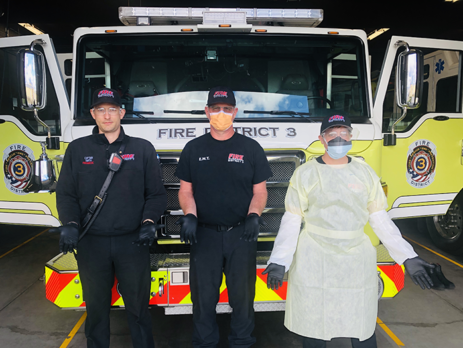Public Health Emergency of International Concern – Mpox Clade I
The likelihood of a large outbreak of Mpox Clade I or I b is low outside of Africa, but isolated cases or outbreaks are possible. This post provides an early alert to First Responder Agencies, especially those that do EMS, to make sure their agency is ready if Mpox should occur in your area, to reduce the risk of responders being exposed to & developing Mpox. There will be some suggestions for initial preparation for Mpox to get you started....





